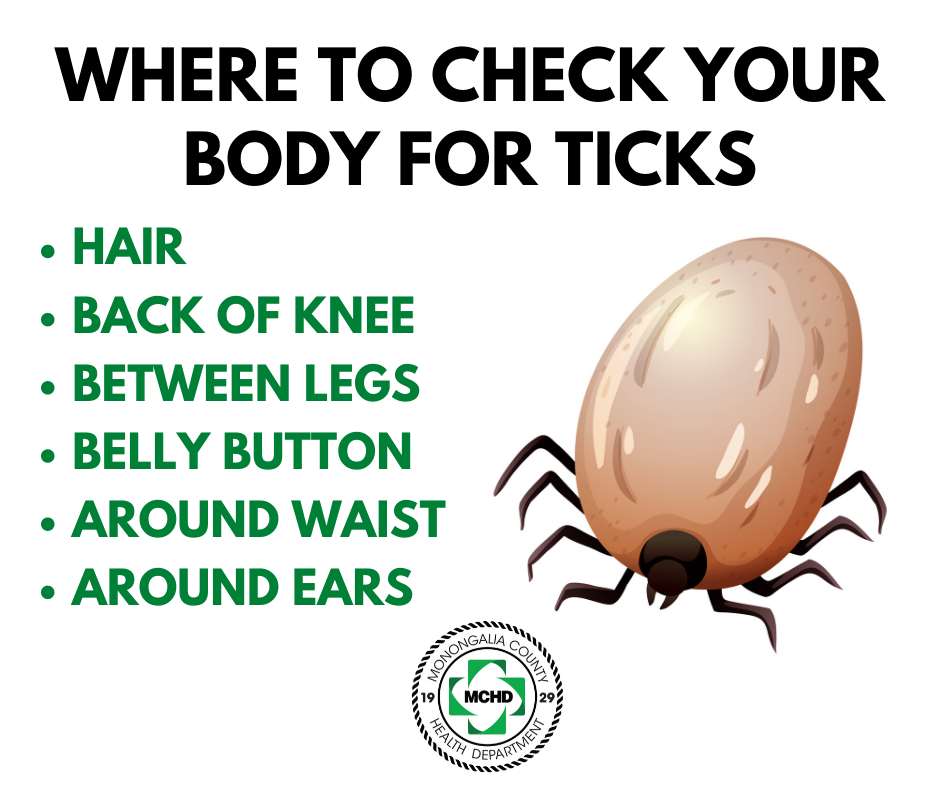COVID-19 hasn't canceled summer... or ticks and mosquitoes

Jun. 3, 2020
By Kenzie Bostick
Even in these trying times when we are social distancing and staying home more, we still have the outdoors.
Unfortunately, the outdoors still has ticks and mosquitoes.
As the weather warms and more people spend time outside to get a break from the stay at home orders, it is important to remember the threats that mosquitoes and ticks can pose to one’s health.
Preventing tick bites begins before you even step outside. You should know where you are likely to encounter ticks. Ticks like to stay in grassy, bushy or wooded areas, and can also be found on animals. It is also important to use insect repellents.
Once you return from outside, check your pets and your body for ticks. You should check your waist, between legs, back of knees, around hair, belly button, around the ears and under your arms. Showering within two hours of returning indoors can help reduce the chances of Lyme disease and can wash off unattached ticks that may have gone unnoticed.
If you do find a tick attached to your body, remove it as soon as possible. Use tweezers to grab the tick as closely to your skin as possible. Pull upward with steady pressure, making sure not to twist the tick. Twisting the tick can cause the mouth to break off and remain in the skin. After removing the tick, clean the area with rubbing alcohol or soap. Dispose of ticks by flushing it down the toilet, wrapping it in tape, or placing it in a sealed container.
Ticks can carry diseases and if you begin to develop symptoms, you should see your health care provider. The most common symptoms of diseases caused by ticks are fever, chills, rash and aches and pains. The most common disease spread by ticks is Lyme disease, which can spread to joints, heart and nervous system if left untreated. Most cases of Lyme disease can be treated in a few weeks with antibiotics.
Ticks are not the only thing to look out for when enjoying the outdoors. Mosquitoes can carry diseases like West Nile virus, malaria, yellow fever and Zika virus. In the United States, West Nile virus is the most common of these diseases. There are no vaccines or medications for West Nile virus, but many people who get infected do not experience symptoms. About 20% of people will experience symptoms, and 1 out of 150 will develop a serious or fatal illness.
Those who do experience symptoms of West Nile virus can have a fever, headache, body aches, vomiting, diarrhea or rash. If the disease is a more severe case, there can be vision loss, paralysis, coma, tremors and disorientation. Anyone can develop serious illness, but those who are over 60 years old, have medical conditions or have received an organ transplant are more at risk.
Mosquito bites can be prevented by using insect repellent, wearing long sleeves and pants and using screens if you keep your windows open. During mosquito season, which is summer into fall, remove any standing water near your home to avoid mosquitoes from laying eggs in the area.
While the outdoors can be a nice escape during the COVID-19 pandemic, it is important to always remember to be careful when going for a walk, exploring or working in nature.
Kenzie Bostick is a public information intern at Monongalia County Health Department.